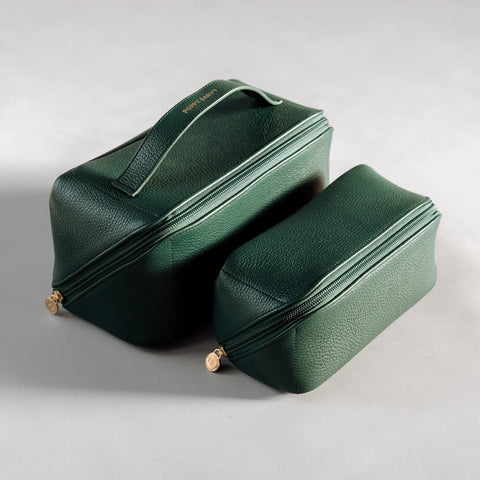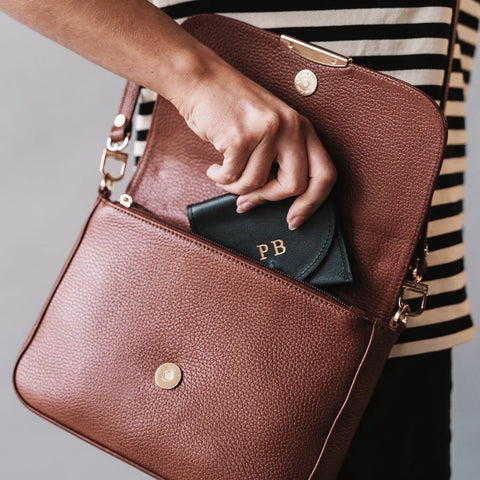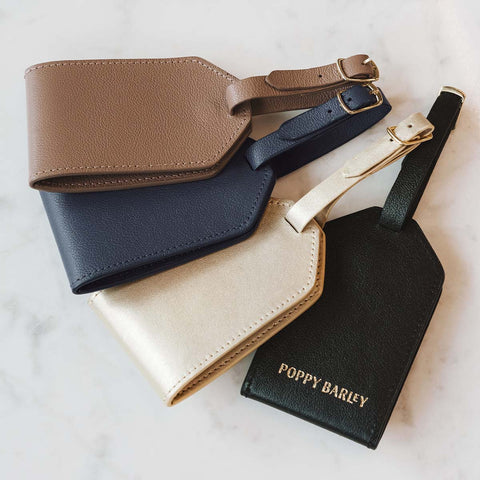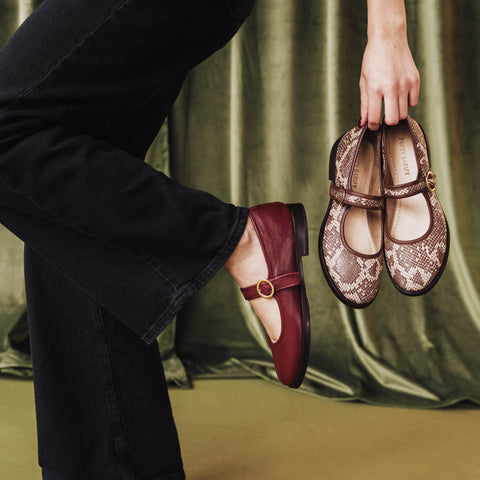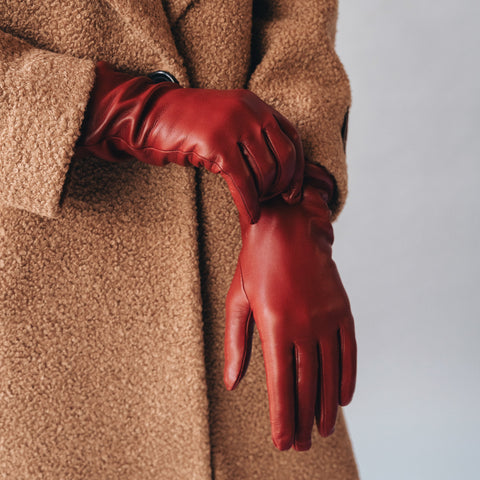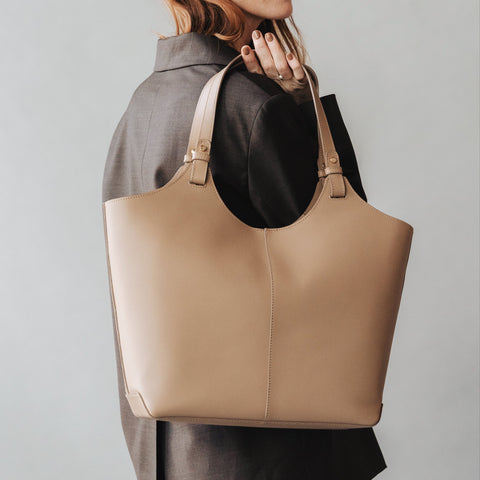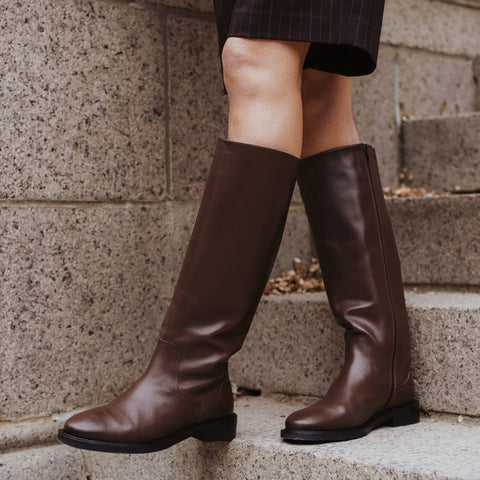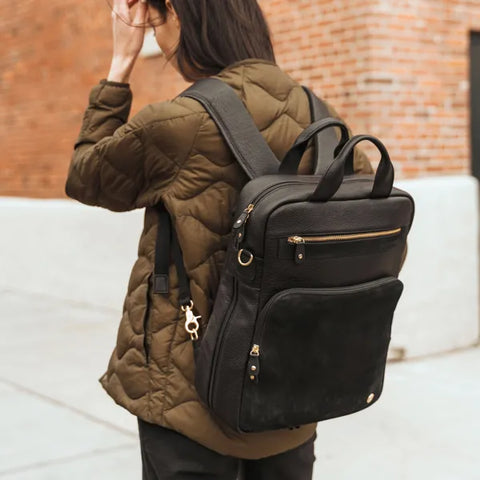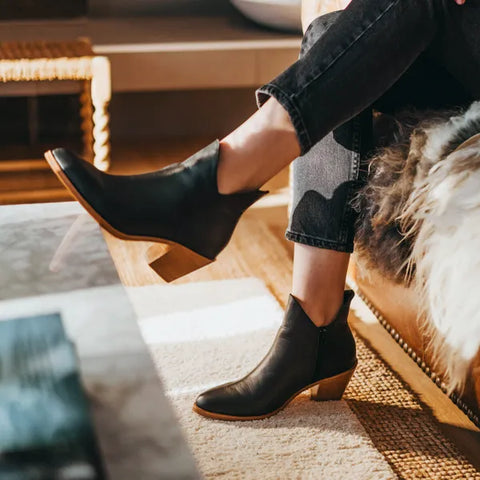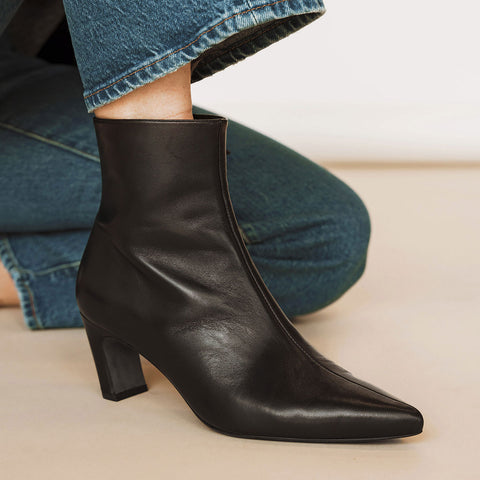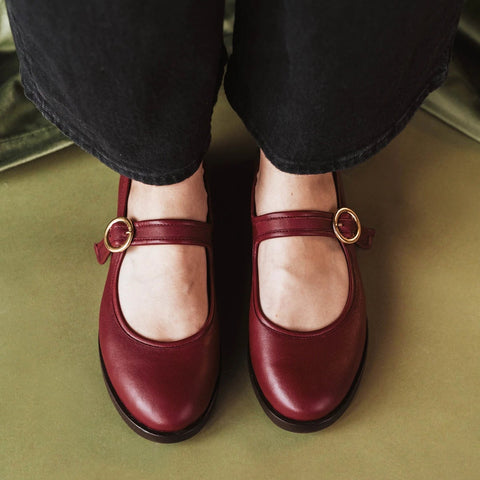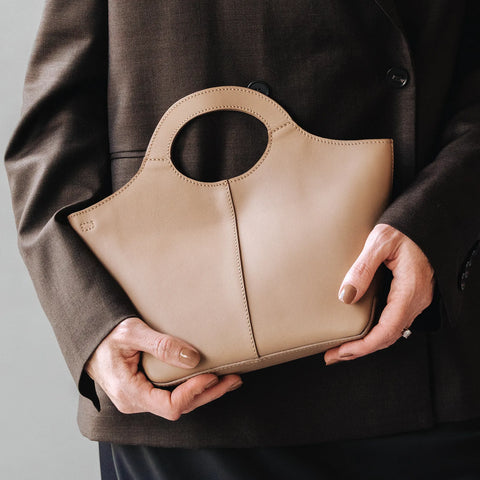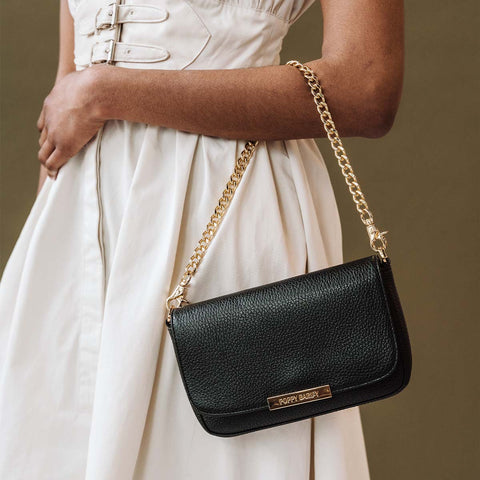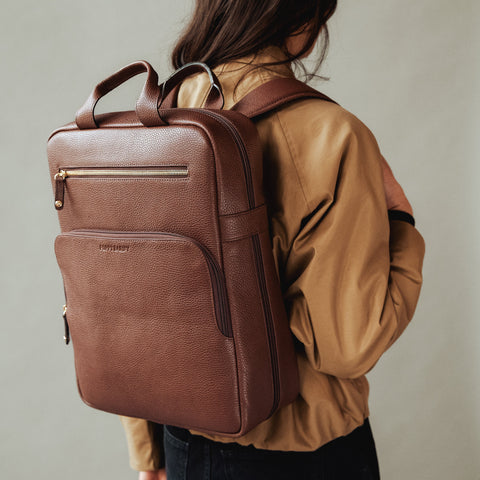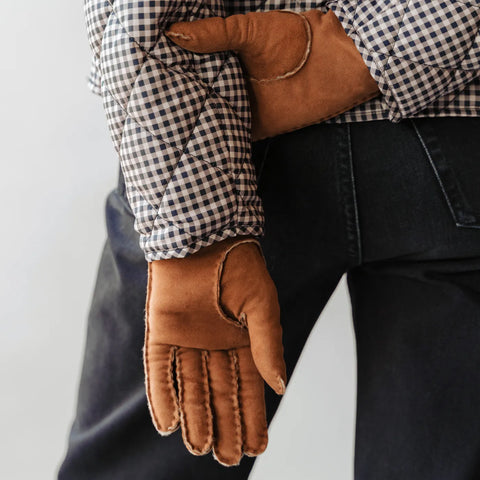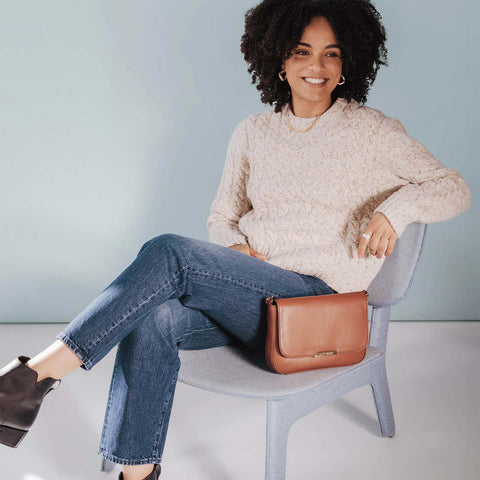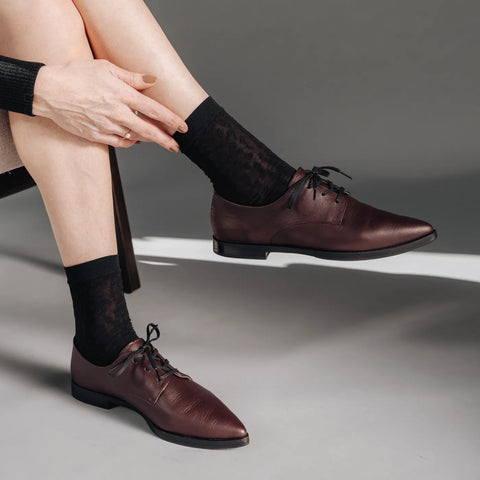Jesse Kupina is a Gastro-Pub Innovator and Nightclub Guru. In plain-speak, he’s the Co-Owner/Founder of Central Social Hall and The Ranch Roadhouse in Edmonton, Alberta. We sat down to chat about the industry, how it’s evolved in Edmonton, and how scrubbing the outside of an Arby’s building put Jesse on his current career path.
Name
Jesse Kupina
Occupation
Co-Owner/Founder of Central Social Hall and The Ranch Roadhouse
Home
Edmonton, AB
Poppy Barley style(s) I own:
The Vancouver Chukka The Edmonton Oxford 
Q: The umbrella company of Central and The Ranch is 212 Social, correct? Tell me about how it got started, what it is, how it came about, and where the name came from.
A: The company started before the name came about. In 2009, I was a part of another company that sold The Ranch Roadhouse. I took my portion of those proceeds and, together with my current partner Jerry Rota, we made our first investment - Union Hall. Soon after, we brought many other bars and clubs on board, including The Ranch and Central. At one point we were operating as five or six different brands, and we wanted to come up with a parent company. Mainly for identification purposes. Our first version of the name was 100 degree entertainment or HDE - the idea being that water is still at 99 degrees and it boils at 100. No matter what you’re experiencing , our product and experience is a degree above. Unfortunately, during market testing, people associated it with
Hundred Bar and Kitchen here in Edmonton. Instead, we went with the Farenheit version of water boiling, and 212 was born. The Social Co. part comes from what we are at the core. We’re about getting out there and being social. Whether it’s a concert, a pub crawl, a night out, or getting a bite to eat.
Q: So, historically, it sounds like 212 encompassed quite a few establishments. As of right now, it’s just Central and The Ranch. Is there a reason that you decided to focus on those two businesses in particular?
A: As we grew, we identified the businesses that we felt we could replicate, duplicate, and grow more than the other ones. We thought that Central and The Ranch were the way to go. We feel that Central can be replicated and moved to multiple cities, and we feel that The Ranch can do the same. We are very proud about the longevity of The Ranch, and how it’s sustained it’s staying power. As we got older, Central became a place where we would like to hang out. It’s sort of that hybrid experience of a premium pub, with a bit more of a social atmosphere. Realistically, details matter in this type of business, and as much as your creative sense wants to try a few different concepts or themes, if you can focus all of your energy into one or two brands, you don’t have to divy up all the best ideas. This way, we can be laser-focused on our two brands and continue to grow those businesses. 
Q: What’s it like owning two completely different types of establishments? Is finding that balance challenging, or is it more similar than one might think?
A: There are definitely similarities when it comes to the way you run your overall business: the culture, the direction, the way you treat your employees, how you deal with suppliers, all of it.. It’s funny, though — if you ask someone why they go to a restaurant—generally, they say the food is good and service is good. My general belief is, that if you have good food and service, and the restaurant is clean, you’ll build business from that. People will come back. You can do marketing, and specials, and gimmicks to drive traffic on top of that, but if you have those core performance markers, you’re going to build business. Alternatively, if you ask someone why they go to a nightclub, they’ll say, ‘well, because everyone goes there.’ So you have to ask yourself, ‘why does everyone go there?’ You have to solve for that X-factor. It’s not just about having the most beautiful room, the best DJ, or the best sound. Club life is about pop-culture; what’s popular, what’s happening currently in our market musically, celebrity-wise, etc. It’s just a representation of what’s at the peak of popularity. So, on the nightclub side, other than your baseline guest experience, you really have to focus on what’s cool, what’s exciting, and what’s going to drive someone to go there. So yes, there are some similarities, but optically, they’re much different. Restaurants have menus and food costs, whereas you’re just trying to make a nightclub busy. Once it’s busy, it kind of takes care of itself.
Q: Tell me a bit about your personal background - where you’re from, how you were brought up, and how you ended up in this industry. Ultimately, how has your background impacted how you run your businesses?
A: I was born and raised in Edmonton. I grew up in NE Edmonton in Clareview. I started working at a young age. At 13-years-old, I got a job at Arby’s cleaning the outside lot for $4 an hour. I wasn’t even allowed inside. I’d sweep the lot, mow the lawn, scrub the concrete, and wash the side of the building for 8-hours a week. The guy had the cleanest Arby’s in the company. From there, when I was finally allowed to work inside, I worked in the back for a while, and then became a line cook. Eventually, I got the chance to work front-of-the line at the drive thru. That’s when I realized that customer service was my jam. Growing up, all my jobs were mostly in restaurants. That’s where I was able to hone my skills and my passion. Later, I did a two-year diploma in Management Studies at MacEwan University. I also worked at some big nightclubs during those days which gave me experience working for other people. But, I always had a hankering to have my own place. My initial dream was to play in the NHL, but obviously that didn’t quite work out. I really enjoyed going down the path of figuring out who I am and what my passions are. When I was in my 30s I started to focus on making that a reality. Once I set that intention, things started to come my way and I was able to step into that role. People always think that owning bars and clubs is a luxurious lifestyle, but there’s a lot of hustle involved. The margins aren’t great, but the energy of the people I’m surrounded by has kept me young and happy. When you come into a room full of people having fun, eating food that you thought of, drinking drinks that you thought up, enjoying bands and musicians that you hired, in a building that you designed, it’s really rewarding. 
Q: You’ve been in this industry for a long time. In your opinion, how has the culinary and nightlife scene evolved since you started?
A: It’s evolved a lot, and it’s stayed steady a lot. One example is Joey. I worked at Joey in 2003 and the place looks 90% the same and it’s still just as busy. So you see great concepts like that stay the course and still remain popular by providing great quality and a good service. That being said, there are a couple things that are really different. Ultimately, I think people have changed. We have a more open palate these days. Maybe that’s a generational thing, but I think there’ a lot more of a focus on spending your money locally instead of just at the big chains. There are obviously the big fish still killing it, but it’s changed. When I was a kid, there was Boston Pizza, a few high end restaurants, and then nightclubs. I think that the middle ground is where we’ve seen the most evolution. The sector where we’ve seen the most shrinkage in the industry is definitely nightclubs. When I was a young man, going out multiple times a week, there were like 15 nightclubs in the city. When we started in 2009, I think we counted 11. Now, it seems like the partying is around pub experiences, where you can combine food and drink, and not just drinks and dancing. When we started in this business, it was the 18 to 25-year-olds going out. Now, it’s everyone - from 18 to 60 going out for food, brunch, or to just have a drink. It’s really neat to see the variety and diversity of people going out. People don’t just get married, have children, and tap out. There’s a bit of a societal revolution where people want to see and be seen and to create that social connection.
Q: It seems like bars and clubs in Edmonton are constantly rebranding. Is that an Edmonton thing, or is that just a general trend in the industry? How do you stay relevant in that ever-changing industry?
A: It’s both. This is due to the fact that there are two types of customers. There’s a percentage of people that always want the newest, greatest, hottest thing. And then there’s a lot of people that like to find a place, get comfortable, and revisit that. There’s always room for longevity in our market. The trouble with re-branding is that just slapping a new sign above the door doesn’t change the core principles of the company, so the experience isn’t going to change. If a rebrand is going to be done, it has to be done very strategically and very thoughtfully and the brand needs to have the follow-through to provide what is advertised. Customers are savvy and educated enough to not be fooled by a simple rebrand. How we stay relevant is to be aware of that, and have a real passion for the business. I am passionate about food, trends, and eating at other places. Staying relevant is also all about taking risks and chances in order to evolve, and not getting complacent when you see success.
Q: Speaking of evolving, what do you see for the future of your business?
A: I’d like to continue to look at different markets and what Central may look like as a suburb location versus a downtown location. A lot of the successes we’ve seen is because of things like our systems, accounting, and back-of-house processes. Now that we’ve nailed that down, there could definitely be an opportunity to launch a new brand in Edmonton, so stay tuned!
Q: So, as a fellow Edmonton-based company, we want to know: why do you connect to Poppy Barley? Why are we your go-to choice for footwear?
A: My initial connection to Poppy Barley was meeting Kendall Barber, and hearing about what she was up to in our city. I really connected to her as a business person. I liked hearing about how the brand has grown, and how openly she talked about how having a baby and being an entrepreneur means that there’s never a right time for anything. I really admired that, and it got me curious about the brand. Once I went to the store, tried on the shoes, and immersed myself in the culture, I was sold. The quality, customization, and the fact that it’s a local business, all at an affordable price, really locked me in. It’s also really cool that Poppy Barley, like all the big name brands, has a unique style all its own - it’s a company that represents Edmonton well.



